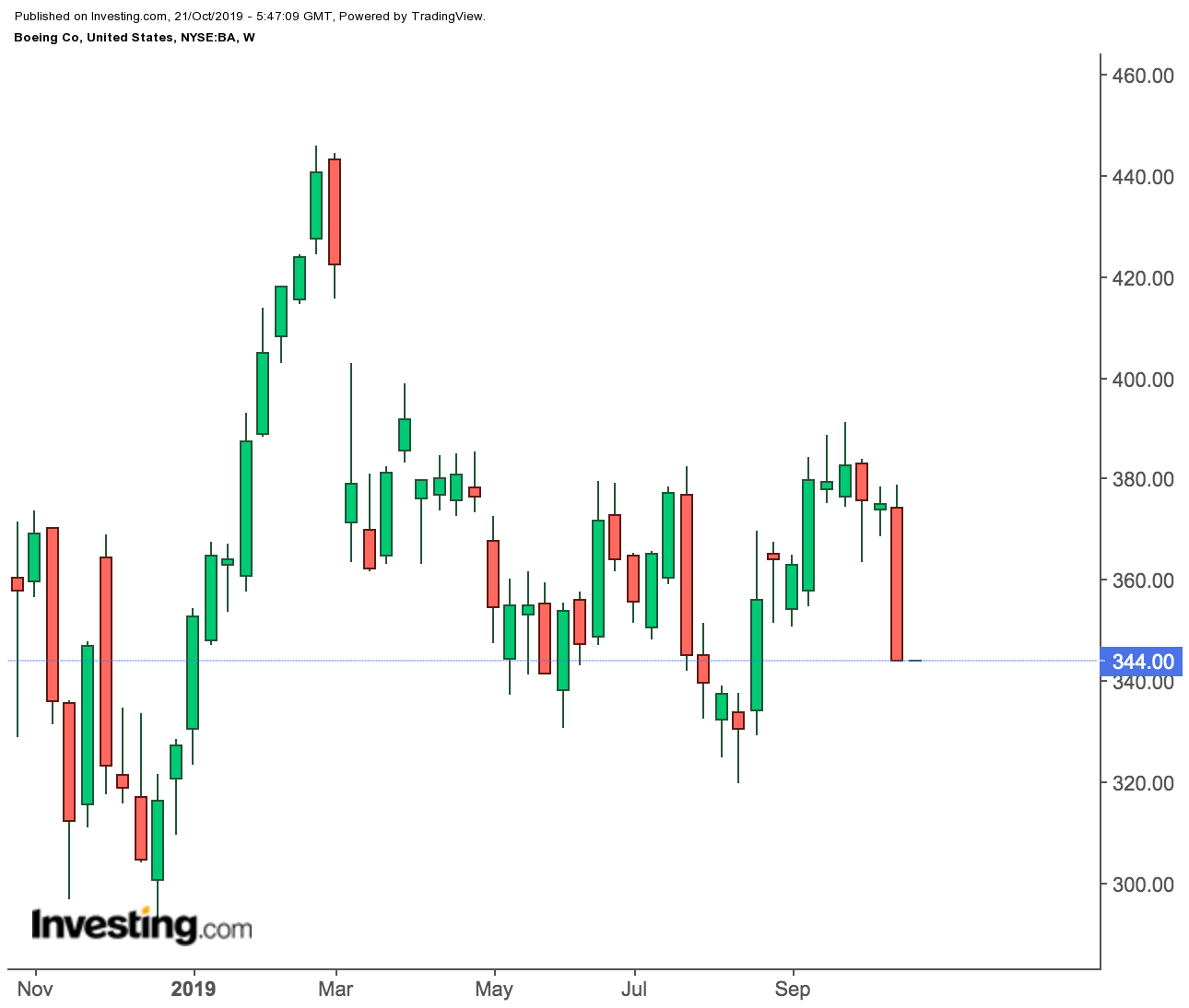* Reports Q3 2019 results on Wednesday, Oct. 23, before the open
* Revenue expectation: $19.56 billion
* EPS expectation: $2.08
For the world’s largest plane-maker, Boeing (NYSE:BA), the worst is far from over. A flurry of negative news about the company’s handling of the 737 Max's faulty system is making its earnings results less relevant and keeping investors on the edge as global investigations continue.
Just as investors were hoping to see the resumption of its 737 Max flights following the model's worldwide grounding since March 13, the process suddenly became more complicated after the Wall Street Journal’s revelation last week that a senior Boeing pilot flagged concerns about the 737 Max flight-control system three years ago, but the company didn’t alert federal regulators until 2019.
This narrow-body aircraft was the aerospace giant’s best bet to grow in a tightly fought battle with its competitors, but its journey came to a screeching halt this year after two fatal crashes involving the aircraft within the span of five months.
As long as Max remains grounded, it will be tough to figure out the extent of the damage to the company’s reputation and its financial outlook. But the stakes are too high for both Boeing and for the U.S. economy.
The 737, which first entered service in the late 1960s, is the aviation industry’s best-selling model and Boeing’s top earner. The re-engineered Max version was so successful that it attracted more than 5,000 orders worth more than $600 billion, including planes that have already been delivered. But the commercial return of Boeing’s best-selling plane has slipped repeatedly and now isn’t likely before early 2020. The delays have cost the plane-maker at least $8.4 billion so far, according to Bloomberg.
Shares Plunge
Boeing shares plunged 6.8% to $344 at the close of trading on Friday, hurt by the new revelations and the continuing rift between the company and the Federal Aviation Authority. The slide in Boeing stock was the worst since February 2016 and marked the biggest decline on the Dow Jones Industrial Average.

Going forward, we don't think Boeing can reach full operational normalcy in the near-term — and the main impediment in this process is regaining public trust.
Boeing is certainly capable of solving the technical issues required to make Max a viable revenue generator again, but that process is also closely tied with winning back public confidence. The allegations last week that Boeing executives may have known about problems with the 737 Max has further damaged that process.
The FAA said as recently as last week that any actions associated with the original approval of the plane aren’t relevant to the work it’s conducting now. Regulators have required Boeing to perform a new safety analysis of the faulty system and is requiring multiple tests that weren’t done prior to the jet’s original certification in 2017.
Bottom Line
Boeing stock will recover from this crisis and Max's technical problems will be fixed. The next step seems to be establishing responsibility and moving on. That may cost Boeing's Chief Executive Officer Dennis Muilenburg his job, if authorities come to the conclusion that the company intentionally hid the information from them. We believe that's when BA shares will finally be able to break out of their rut, offering an opportunity to buy.
